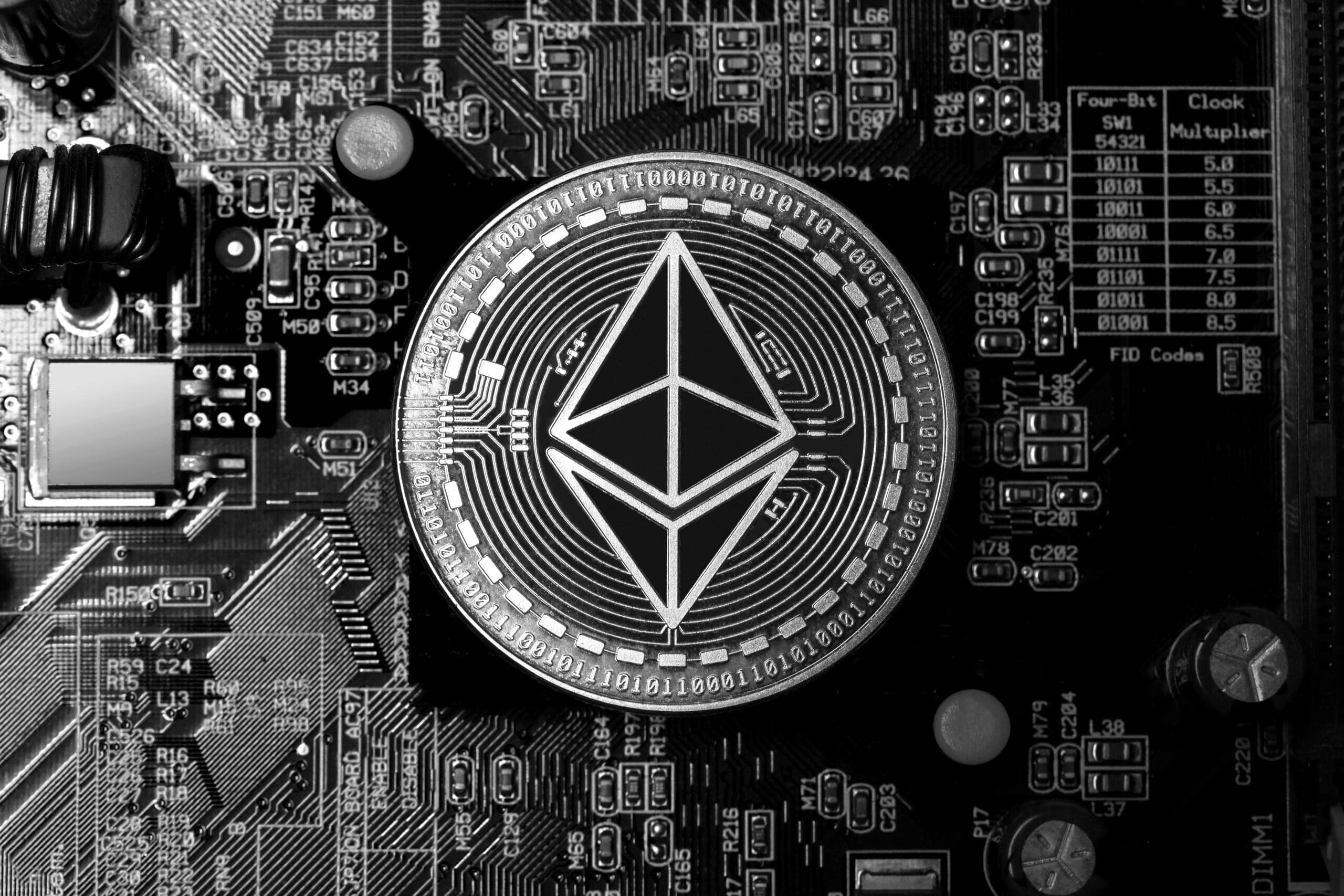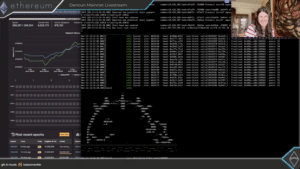Ethereum has completed a significant upgrade of its blockchain network, which is expected to pave the way for the next generation of crypto users to transact onchain without suffering significant spikes in gas fees.
The upgrade, named “Dencun,” was completed early morning Wednesday ET after it was activated on Ethereum’s mainnet at epoch height of 269568, according to Ethereum developers in a live stream on YouTube. At one point, more than 3,600 people were watching the official rollout of Dencun on the livestream.
“We basically enter this new era of Ethereum scalability,” said Anthony Sassano, the creator of Ethereum-focused media site The Daily Gwei, referring to how Dencun implements EIP-4844 and “proto-danksharding,” which creates a highly optimized and much cheaper storage space where rollups can post data to called “blobspace.”
“It’s the first step on a long journey that has been going on for a few years now towards what we [Ethereum contributors] call full danksharding, which will greatly increase Ethereum’s scalability properties specifically for layer 2s,” Sassano added.
Read more: How Much Will the Dencun Upgrade Really Reduce Ethereum Layer 2 Fees By?
Dencun is Ethereum’s most substantial software change since Shapella, which occurred about 10 months ago. Before the hard fork upgrade, rollups had to store information such as transaction history in calldata, which is “really expensive, because Ethereum calldata has to be stored forever,” said Polygon’s vice president of product, David Silverman, in an interview with Unchained.
After the upgrade, when rollups post data to this new blobspace in the form of “blobs,” the information isn’t stored forever and so it’s much cheaper, while still providing similar security guarantees. Consequently, “rollups can generally pass those cost [savings] on along to their users,” lowering transaction fees on Ethereum’s layer 2 networks, Silverman added.
This impact could occur immediately or more gradually over time. The various L2s will go through their respective governance processes to change the target of where they’re posting data from either calldata to blobspace or possibly a mix of the two. This means some networks may see changes immediately on day one, while others may take as long as a month-and-a-half, depending on when their governance votes are held and how easy it is for a rollup to integrate the upgrade, noted Silverman.
For example, the team for the layer 2 blockchain network Base, which was incubated by crypto exchange Coinbase, said in a blog post that Base will have support for the Dencun upgrade on the first day.
Another Ethereum rollup, zkSync, is already ready to submit blob transactions, per Daniel Lumi, senior product manager at Matter Labs, the software firm building zkSync, adding that zkSync has a solution for where the protocol decides to post data.
Getting Lucky
The Dencun upgrade comes as the price of Ethereum’s native cryptocurrency, ETH, is trading around $4,000, a level not seen since the end of 2021 before Ethereum changed its consensus mechanism to proof-of-stake.
While Ethereum developers don’t implement upgrades based on market pressure, the Dencun upgrade implementation coinciding with the start of an early bull market and ETH trading around the $4,000 level is “lucky,” Silverman noted.
The DeFi Summer in 2020 ended in part because Ethereum’s infrastructure was not ready to accommodate the mass of new users coming onchain, which became evident when gas prices to execute a token swap on a decentralized exchange soared to hundreds of dollars.
As a result of Dencun and specifically EIP-4844, which will bring transaction costs down, “we now have a ton more capacity from all these rollups to handle this next generation of users without gas prices spiking up to $200 [or] $300 per swap, killing our momentum,” Silverman said. “We got lucky in the sense that we got this [the Dencun upgrade] out of the way before retail is coming back.”



